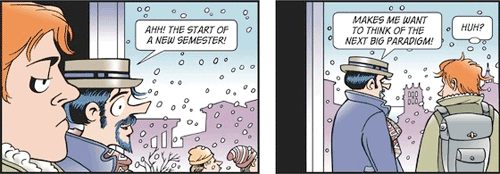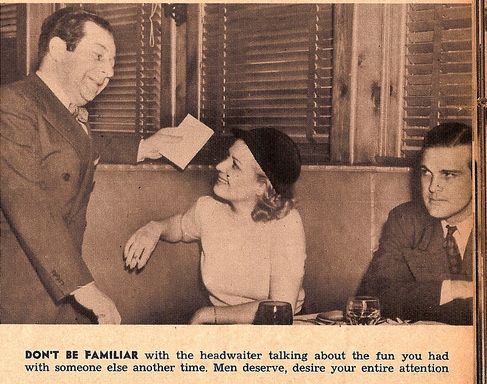This is an abbreviated summary of my class lecture in developmental biology today. This was the first day of class, so part of the hour was spent on introducing ourselves and going over the syllabus, but then I gave a lightning fast overview of the history of developmental biology.
Classical embryology began with Aristotle, whose work was surprisingly good: he approached the problem of development with relatively few preconceptions and fairly accurately summarized what was going on in the development of the chick. Most of this old school embryology is descriptive and was really a narrow subset of anatomy, but there were a few major conceptual issues that concerned the old investigators, in particular the question of preformation (the plan of the embryo is laid out in the egg) vs. epigenesis (the plan of the embryo emerges progressively). Aristotle, by the way, was on the right side of this debate, favoring epigenesis.
In the 19th century, development was seen as a progressive process that paralleled the hierarchical organization of nature — that is, developmental biology, what there was of it, was coupled to the great ladder of being. This is not an evolutionary idea, but reflects the view that there was a coherent pattern of greater and lesser development that was part of a coherent divine plan for life on earth. The German ‘Natural Philosophers’ pursued this line of reasoning, often to degrees that now look ridiculous in hindsight. In contrast, there were developmental biologists like Karl Ernst von Baer who wanted nothing to do with a cosmic teleology but instead preferred to emphasize observation and data, and simple minimal hypotheses.
In the late 19th century, developmental biology split into two directions. One was a dead end; Ernst Haeckel basically lifted the explanatory framework of the natural philosophers, replaced divinity with evolution, and tried to present development as a parallel process to evolution. Von Baer had already demolished this approach, and despite a few decades of popularity Haeckelian recapitulation died as a credible framework for studying evolution in the early years of the 20th century. The other direction developmental biology took was Wilhelm Roux’s Entwicklungsmechanik, or experimental embryology. This was an approach that largely eschewed larger theoretical frameworks, and focused almost exclusively on observation and experimental manipulation of embryos. It was a successful discipline, but also divorced mainstream developmental biology from the evolutionary biology that was increasingly influential.
As examples of Entwicklungsmechanik, I discussed Roux’s own experiments in which he killed one cell in a two-cell embryo and saw partial embryos result, an observation that fit with a preformationist model, but more specifically a mosaic pattern of development, in which patterns of development were encoded into the cytoplasm or cortex of the egg. Those experiments were seriously flawed, however, because the dead cell was left attached to the embryo, and could have deleteriously affected development. The experiments of Hans Driesch were cleaner; he dissociated embryos at the four cell stage, cultured each blastomere independently, and discovered that each isolated cell developed fully into a complete, miniature larva.
Driesch, unfortunately, interpreted these results to imply that there was an entelechy, or guiding intelligence outside the embryo, and that the only conceivable explanation was the existence of purpose behind embryology. This was also a dead end; the modern explanation for the phenomena is that they regulated, that is, that cells determine their fate by interacting with one another, rather than some kind of cosmic plan. And that’s really going to be a major focus of this course: how do cells communicate with one another, how are genes regulated to set up coherent and consistent patterns of gene expression that produce the organized cell types we find in an adult multicellular plant or animal?
That set up the next lecture. Entwicklungsmechanik, while representing a solid and productive research program, quickly reached its limits, because what we really needed to examine were those patterns of gene expression rather than trying to infer them from observations of morphology. The big breakthrough was the melding of developmental biology and molecular biology — most of the modern developmental biology literature focuses on examining interactions between genes. So on Wednesday we’ll get another fast overview of the molecular genetics research program, and a bit of evo-devo.






